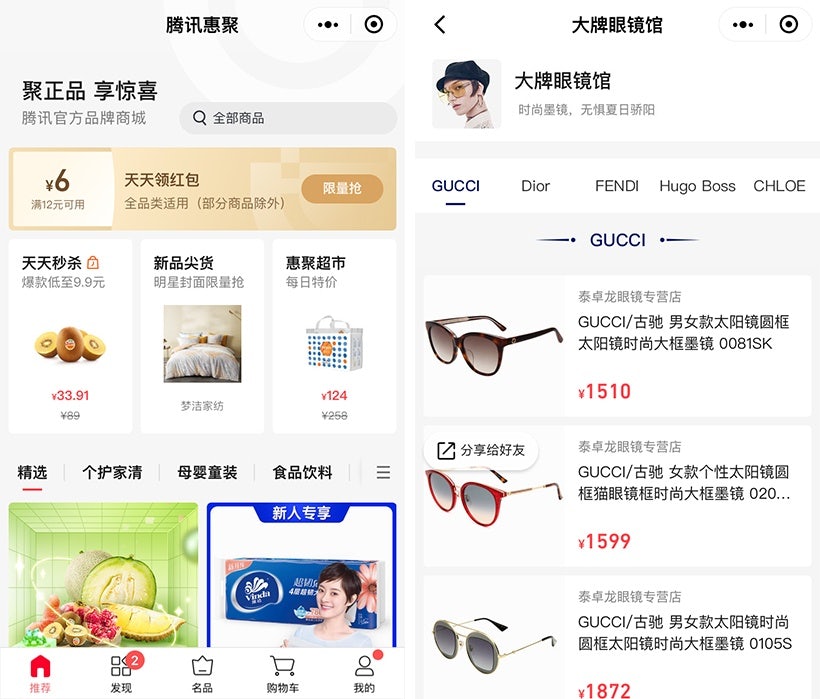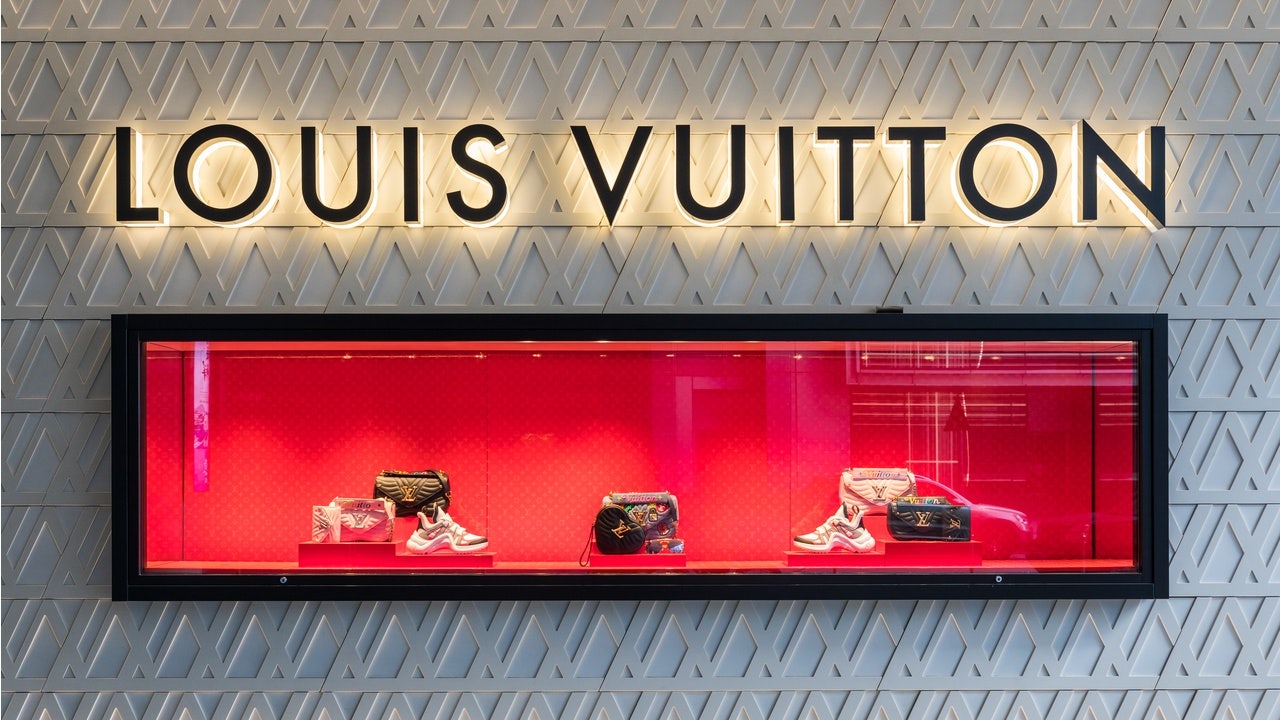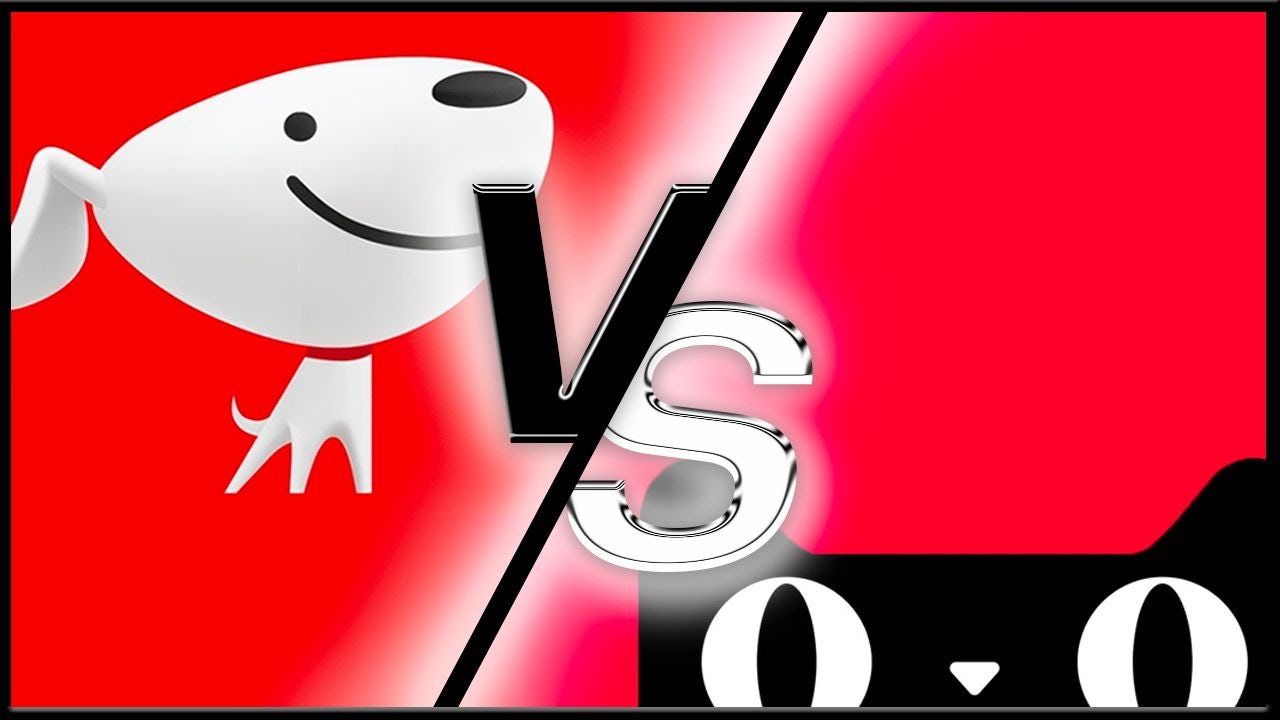What happened
Tencent Huiju, Tencent’s six-month-old, centralized e-commerce marketplace within WeChat, recently added a new channel called Famous Products. The brand-new section is dedicated to luxury Maisons, and, thus far, Burberry, Bulgari, Celine, Dior, Louis Vuitton, Salvatore Ferragamo, and Valentino have decided to promote their products and content there. However, users cannot directly shop on the new page. Instead, they get directed to the brand’s official "applet," where they can complete the transaction.

Tencent Huiju launched this February to provide 12 categories of goods and services for WeChat users, including fresh food, fashion, and medicine. Hundreds of retailers and brands present on WeChat's Mini Program, such as Walmart, Three Squirrels, Bosideng, and others, providing goods on the platform.
The Jing Take
Every tech giant wants a slice of the luxury market, from JD.com and Tmall to Xiaohongshu and WeChat. And with the era of "choose one between Tmall and JD" ending, this competition has only intensified. In fact, these platforms have all made adjustments or new introductions to their operating systems to please and attract high-end brands.
In April, JD.com tested a new cooperative model with Louis Vuitton, in which consumers searching for "Louis Vuitton" on JD.com's app get sent directly to the brand's official WeChat Mini Program or official page. In August, LVMH’s Bulgari joined, as well. Similar models were created by Little Red Book in June. In it, Gucci and Celine’s official site accounts were linked to their WeChat Mini Programs, where consumers could purchase and pay for goods.
WeChat was once the favored platform by cautious heritage houses, thanks to its Mini Program features that enable businesses to create an intimate and personalized experience for buyers. Gucci, Louis Vuitton, and Dior all debuted on WeChat before entering Tmall. Yet, the social site’s private traffic is no longer satisfying growing brand appetites, and they have been multiplying their online distribution channels.
Tencent’s latest move signals an effort to retain its market primacy. Yet, Famous Products and Tencent Huiju are not well known among local netizens and, therefore, are still under scrutiny. As such, brands must carefully scrutinize proposals from China's various platforms and select the most appropriate one for their presence. By housing all its luxury brands in one place, Tencent's latest offer feels like a smart move. But brands are rightly waiting to see if it will become a real difference-maker.
The Jing Take reports on a piece of the leading news and presents our editorial team’s analysis of the key implications for the luxury industry. In the recurring column, we analyze everything from product drops and mergers to heated debate sprouting on Chinese social media.


